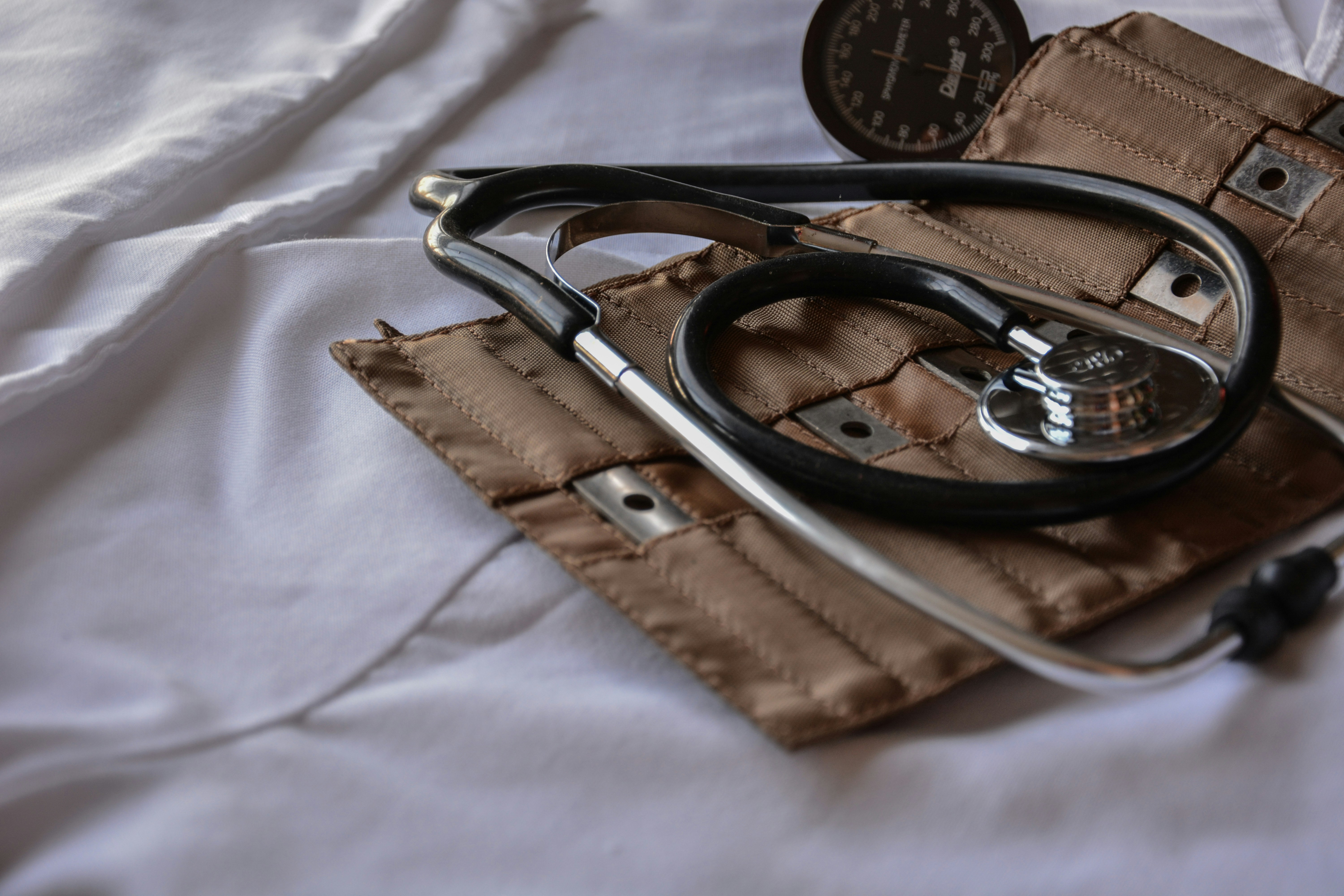
The body’s response to certain remedies, whether they are traditional or modern, is different for every individual. The future of medicine could be a mixture of both modern and traditional treatments.
Author: Cassandra Lee
Since brought into being, humans have been at war with microscopic villains known as viruses and bacteria. Having wiped out entire species over the course of their existence, these pathogens are no stranger to the human immune system, and they have done their fair share of damage by introducing lethal forms such as the bubonic plague, the Spanish flu, and polio. Thankfully, many of these illnesses have been cured due to advancements in pasteurization, vaccination, and antibiotic development, and scientists are working around the clock to find new and innovative ways of treating the thousands of pathogens that still exist in our natural environment.
Modern medicine has revolutionized over the past century, but this does not mean that these modern methods are 100% effective. In fact, despite their everyday use and high success rates, modern-day medicine also comes with health implications and possible side effects that can sometimes worsen an individual’s health condition [1]. Such examples can be seen in drugs aimed at treating disorders such as depression and anxiety [2].
The most common type of antidepressant is called an SSRI, or a selective serotonin reuptake inhibitor [3]. This type of drug, as titled, prevents serotonin reuptake, leading to an increased amount of the serotonin hormone in the body, allowing for mood stabilization and promotion of happiness [3,4]. On the flip side, antidepressants are known to cause many side effects, and can often lead to nausea, insomnia, dizziness, headaches, sexual dysfunction, and a loss of appetite [3]. A more pressing problem originating from these drugs is an increased frequency of suicidal thoughts, which is due to certain serotonin and norepinephrine reuptake inhibitors [5]. When serotonin levels are increased in the body, patients can be led into a state of “akathisia”, which induces restlessness and impulsivity [6]. These behavioural changes can further lead to an increased risk of psychosis and suicidal behaviours [7]. This begets the question whether complete or partial non-medical treatment options can be applied to achieve safer outcomes for these patients.
Similarly, many drugs produced by modern medicine can produce a myriad of side effects, many of which can be avoided if individuals take natural remedies into consideration. In fact, this practice can be found in many Asian cultures — belief in naturopathy is on the rise, and Chinese or Indian herbs are sometimes considered to be effective natural methods of combating illnesses [8]. Examples of these natural remedies include acupuncture or cupping, which are characteristic of ancient Chinese medicine [8].
In believing that human health depends on the energy that flows through all living things, many Chinese remedies believe that the five elements of life — earth, fire, wood, water, and metal — are needed to promote health and balance [8]. At the same time, Indian medicine, also known as ayurveda, uses spices and plants to encourage a healthy lifestyle [9]. For instance, ashwagandha, a plant found in India and in Northern Africa, helps to reduce the cortisol hormone, thus reducing anxiety and stress [9].
These herbal remedies may be somewhat unconventional and may not always have scientific proof to support their claims, but many individuals have experienced significant improvements due to these treatments [10].
At the end of the day, there is no correct universal treatment. The body’s response to certain remedies, whether they are traditional or modern, is different for every individual. The future of medicine could be a mixture of both modern and traditional treatments [11], and with the medical field being as innovative as ever, it is without a doubt that scientists and doctors around the world will continue to bring creative and effective treatments to patients for years to come.
Editors
Kaz Shuji, Ibrahim Alayche, Rhea Verma, and Majd Al-Aarg
Designer
Web design by Alexander Lungu
Additional Credits
Cover photo provided by Marcelo Leal on Unsplash
References
- The Guardian [Internet]. London (UK): Malhotra, A; 2021. Why modern medicine is a major threat to public health; 2018 Aug 30 [cited 2021 Mar 31]. Available: https://www.theguardian.com/society/2018/aug/30/modern-medicine-major-threat-public-health
- WebMD [Internet]. New York (NY): Rausch, SL; 2021. Managing the Side Effects of Depression Treatment; 2021 May 20 [cited 2021 Mar 31]. Available: https://www.webmd.com/depression/features/coping-with-side-effects-of-depression-treatment
- Mayo Clinic [Internet]. Rochester (NY): Mayo Foundation for Medical Education and Research; 2021. Selective serotonin reuptake inhibitors (SSRIs); 2019 Sep 17 [cited 2021 Jan 8]. Available: https://www.mayoclinic.org/diseases-conditions/depression/in-depth/ssris/art-20044825#:~:text=SSRIs%20treat%20depression%20by%20increasing,brain%20nerve%20cells%20(neurons)
- Hormone Health network [Internet]. Washington (WA): Endocrine Society; 2021. What is Serotonin?; 2018 Dec [cited 2021 Jan 8]. Available: https://www.hormone.org/your-health-and-hormones/glands-and-hormones-a-to-z/hormones/serotonin#:~:text=Serotonin%20is%20the%20key%20 hormone,sleeping%2C%20eating%2C%20and%20digestion
- Andalo D. Antidepressants associated with increased risk of suicidal thoughts in healthy adults. The Pharmaceutical Journal [Internet]. 2016 Oct 17 [cited 2021 Jan 8]. Available from: doi:10.1211/PJ.2016.20201834
- Levin M, Jury N, Mohseni K, Srinivasan V [Internet]. Washington (WA): National Center for Health Research; 2020. Do Antidepressants Increase Suicide Attempts? Do They Have Other Risks? 2019 [cited 2021 Jan 8]. Available from: https://www.center4research.org/antidepressants-increase-suicide-attempts-risks/
- Nischal Anil, Tripathi A, Nischal Anuradha, Trivedi JK. Suicide and Antidepressants: What Current Evidence Indicates. Mens Sana Monogr [Internet]. 2012 [cited 2021 jan 8]; 10(1): 33–44. Available from: doi: 10.4103/0973-1229.87287
- John Hopkins Medicine [Internet]. Baltimore (MD): John Hopkins University; 2021. Chinese Medicine; 2021. [cited 2021 Jan 19]. Available: https://www.hopkinsmedicine.org/health/wellness-and-prevention/chinese-medicine
- Petre A [Internet]. San Francisco (CA): Healthline; 2021. 12 Powerful Ayurvedic Herbs and Spices with Health Benefits; 2019 Nov 27 [cited 2021 Jan 8]. Available: https://www.healthline.com/nutrition/ayurvedic-herbs
- Testimonials [Internet]. Riverwoods (IL): Center for Holistic Medicine; 2021. 2021 [cited 2021 Mar 31]. Available: http://holistic-medicine.com/testimonials/
- Yuan H, Ma Q, Ye L, Piao G. The traditional medicine and modern medicine from natural products. Molecules [Internet]. 2016 May 21 [cited 2021 Mar 31];21(5):559. Available from: https://www.ncbi.nlm.nih.gov/pmc/articles/PMC6273146/